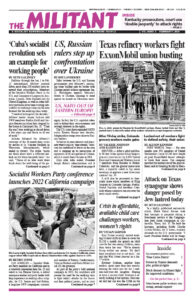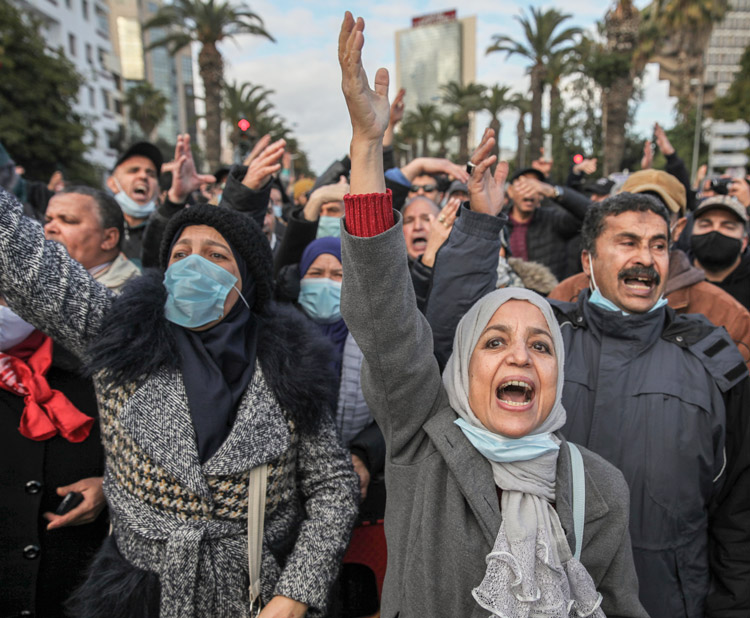Defying a government ban on indoor and outdoor gatherings, more than 1,000 demonstrators took to the streets in Tunisia’s capital, Tunis, Jan. 14 to protest rising joblessness, inflation and attacks on political rights. The date marks the 11th anniversary since massive protests succeeded in overthrowing the rule of former President Zine El Abidine Ben Ali, prompting uprisings across North Africa and the Mideast.
Some protesters chanted, “Down with the coup!” referring to the rule by decree by Tunisia’s current president, Kais Saied, who shut down parliament and suspended the constitution last July.
“This people, which toppled a 23-year dictatorship, is not going to let another dictator take its place,” Sihem Bensedrine, a journalist who headed the now-defunct Truth and Dignity Commission, told Agence France-Presse at the action.
Tunisian police used water cannons, tear gas and batons to disperse protesters. At least one person was beaten to death and dozens arrested. Cops attacked a number of reporters covering the action.
The ouster of Ben Ali in 2011, under the impact of the deepening worldwide capitalist crisis, sparked a wave of uprisings against intolerable conditions and tyrannical regimes, including in Egypt, Libya, Yemen, Syria and Bahrain. In some cases governments were brought down, but nowhere were working people able to forge a revolutionary leadership capable of leading millions to take power into their own hands and establish workers and farmers governments.


